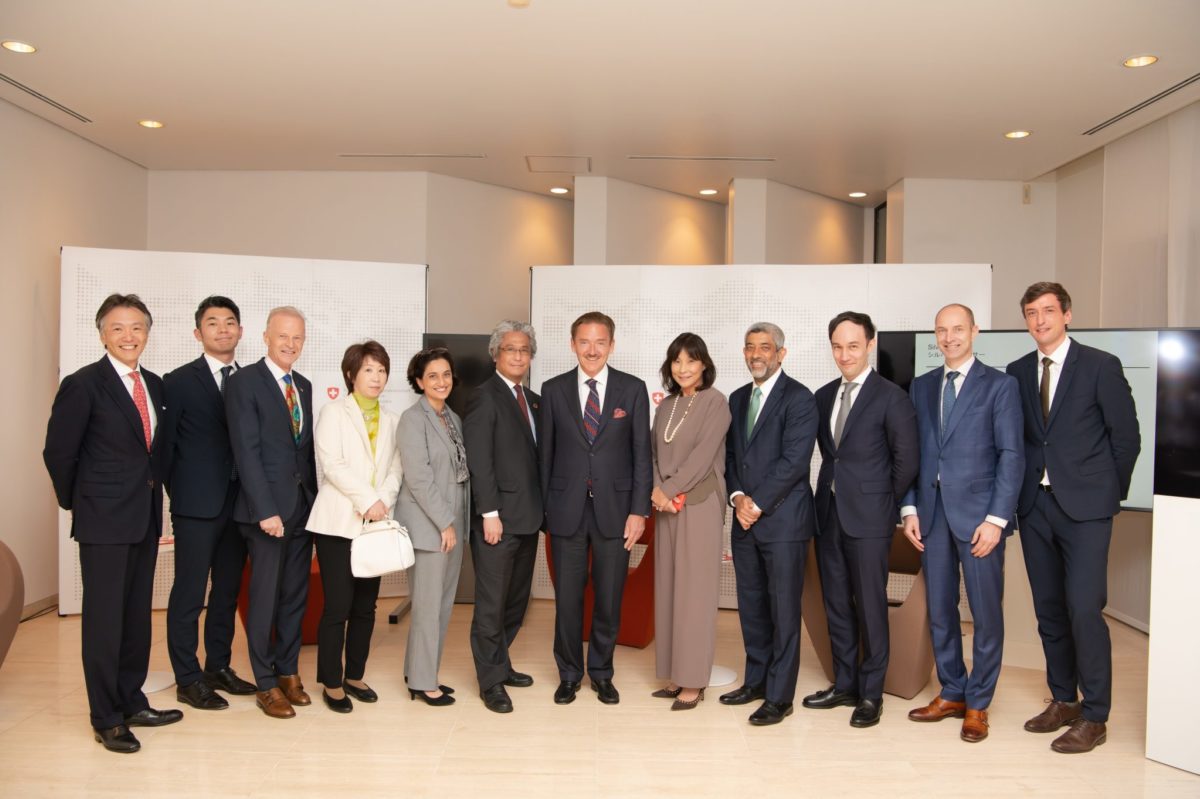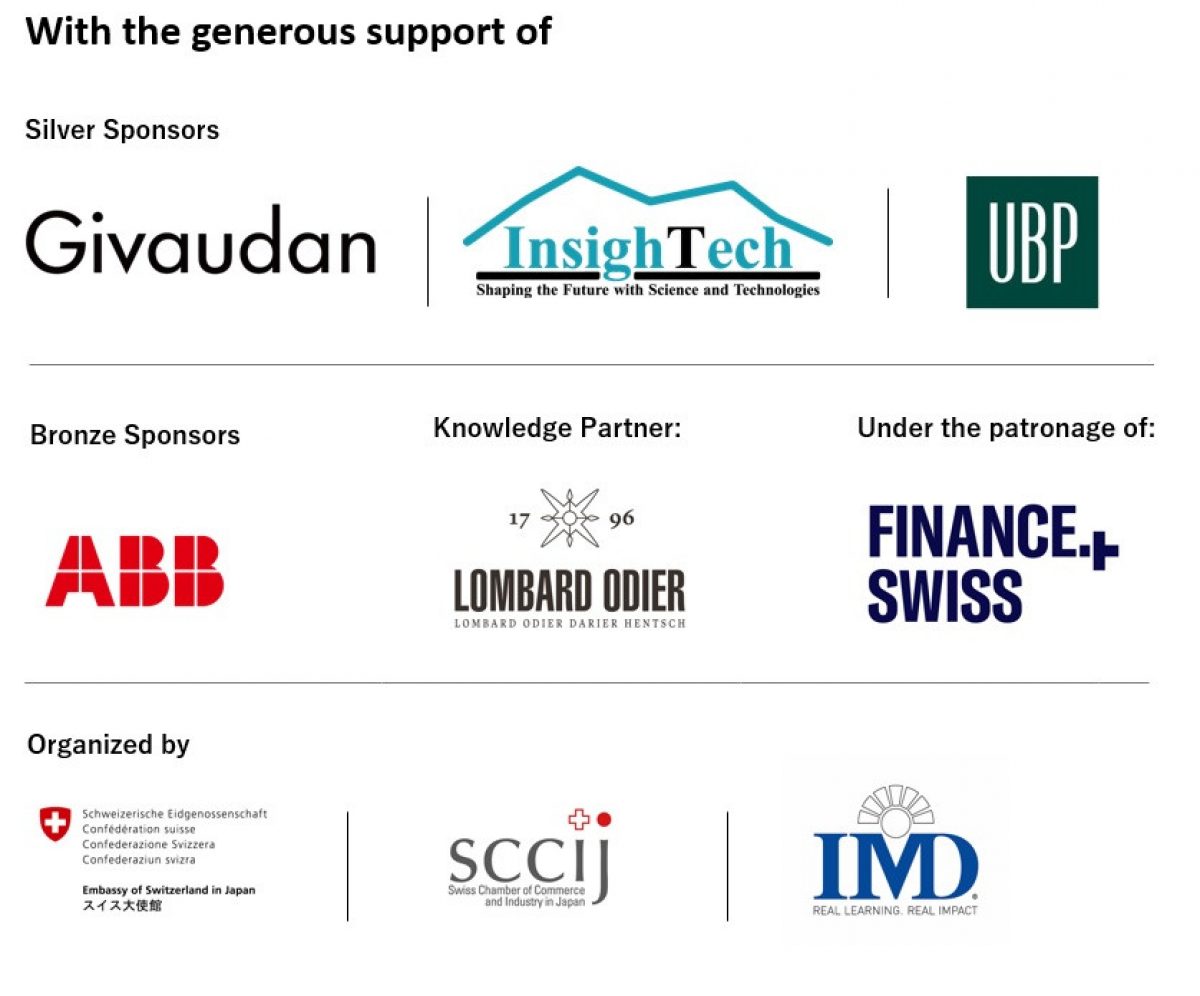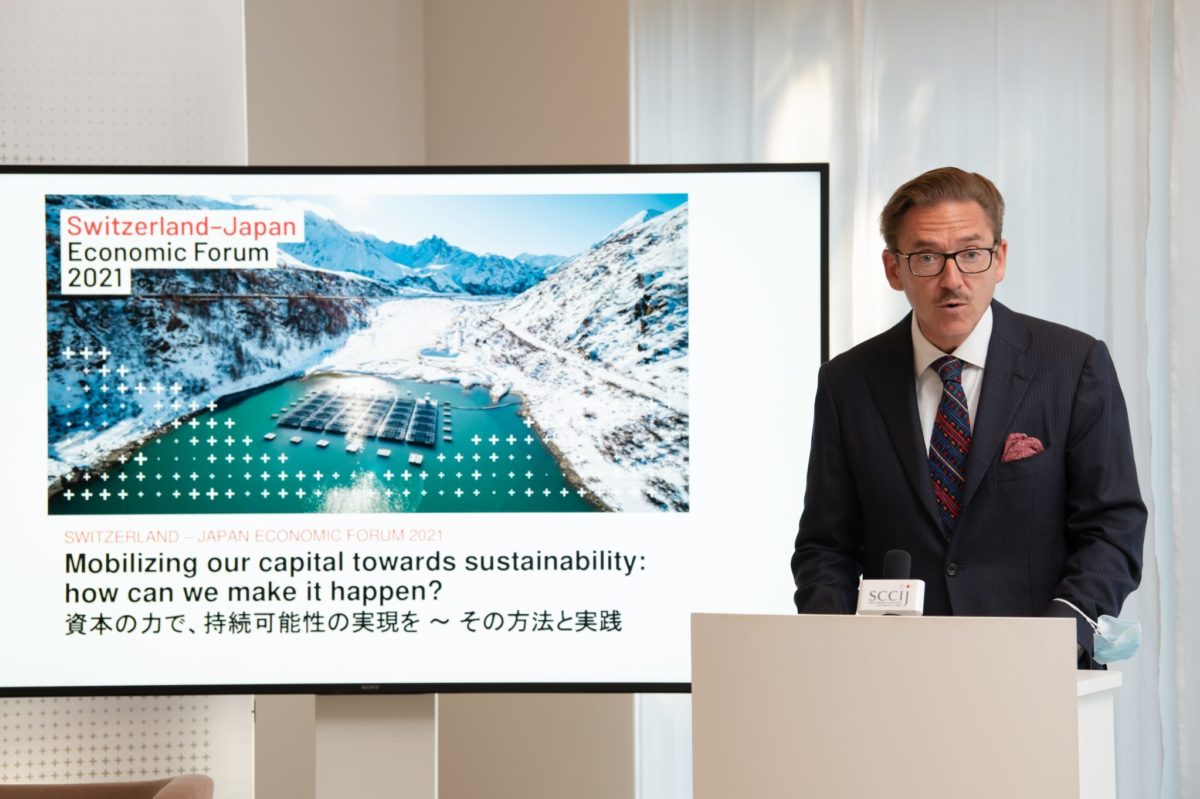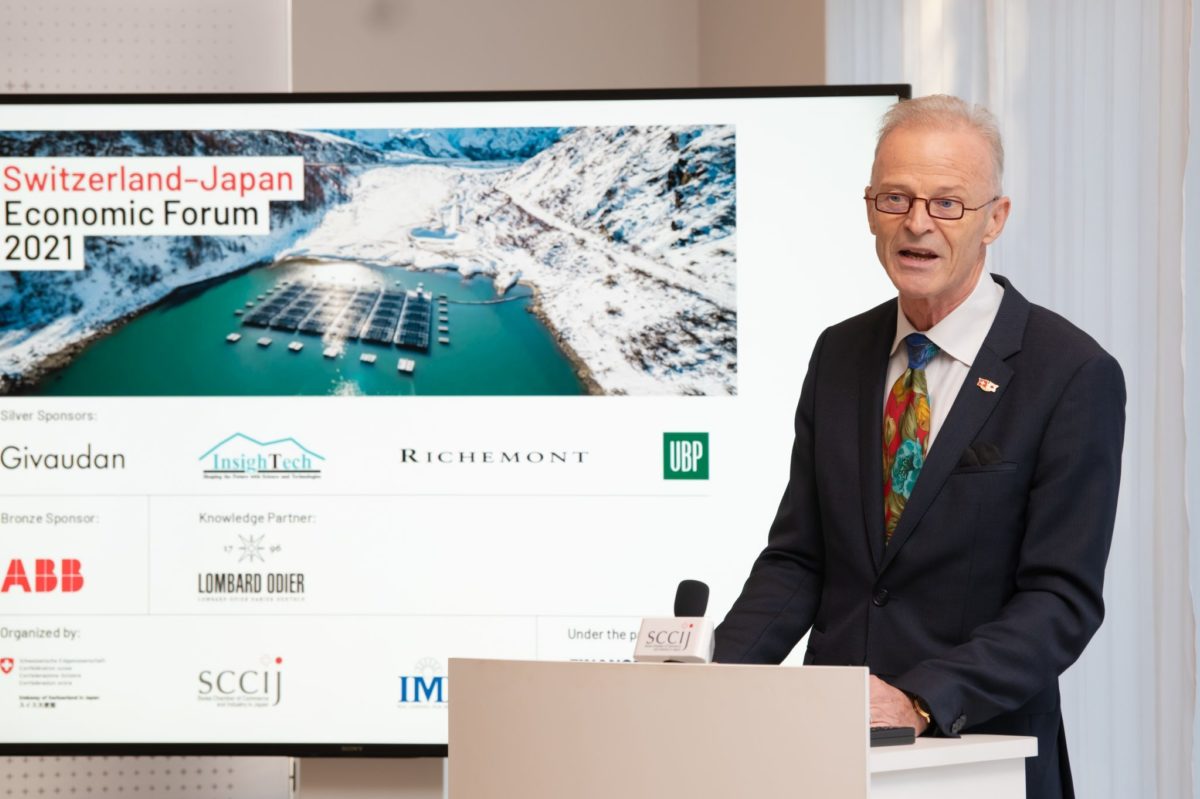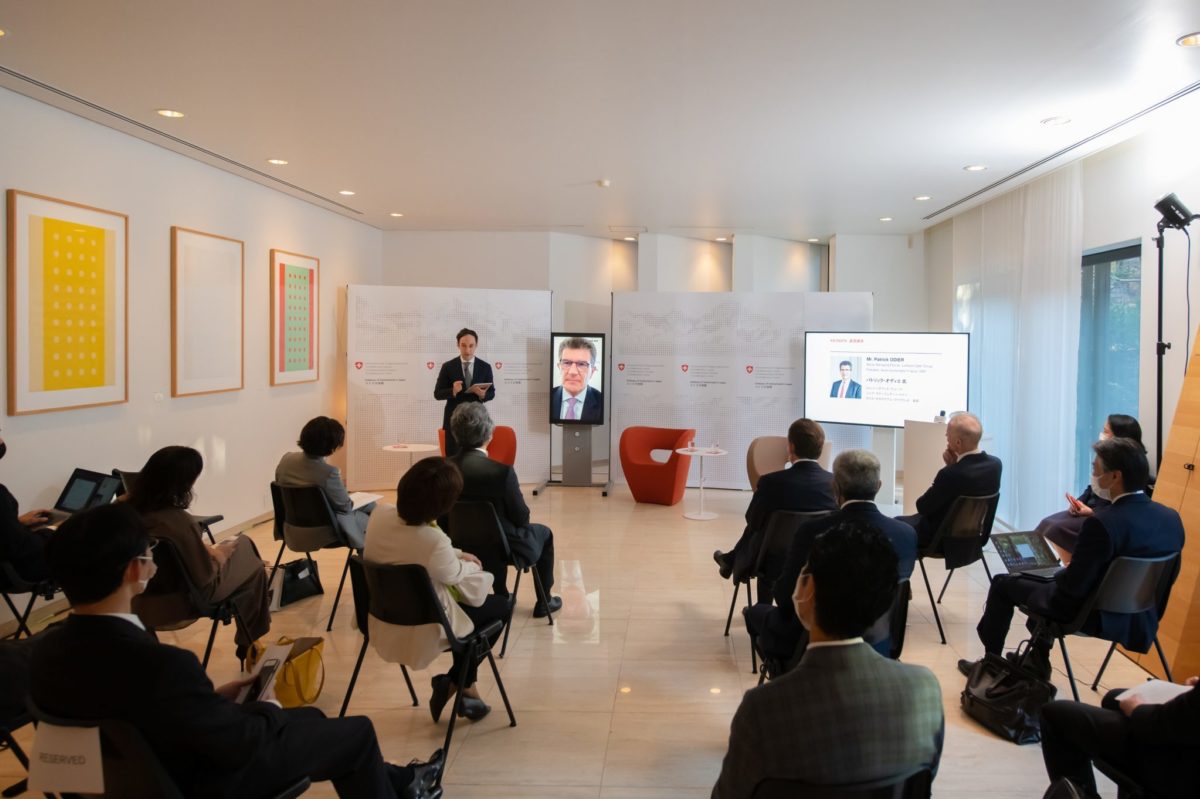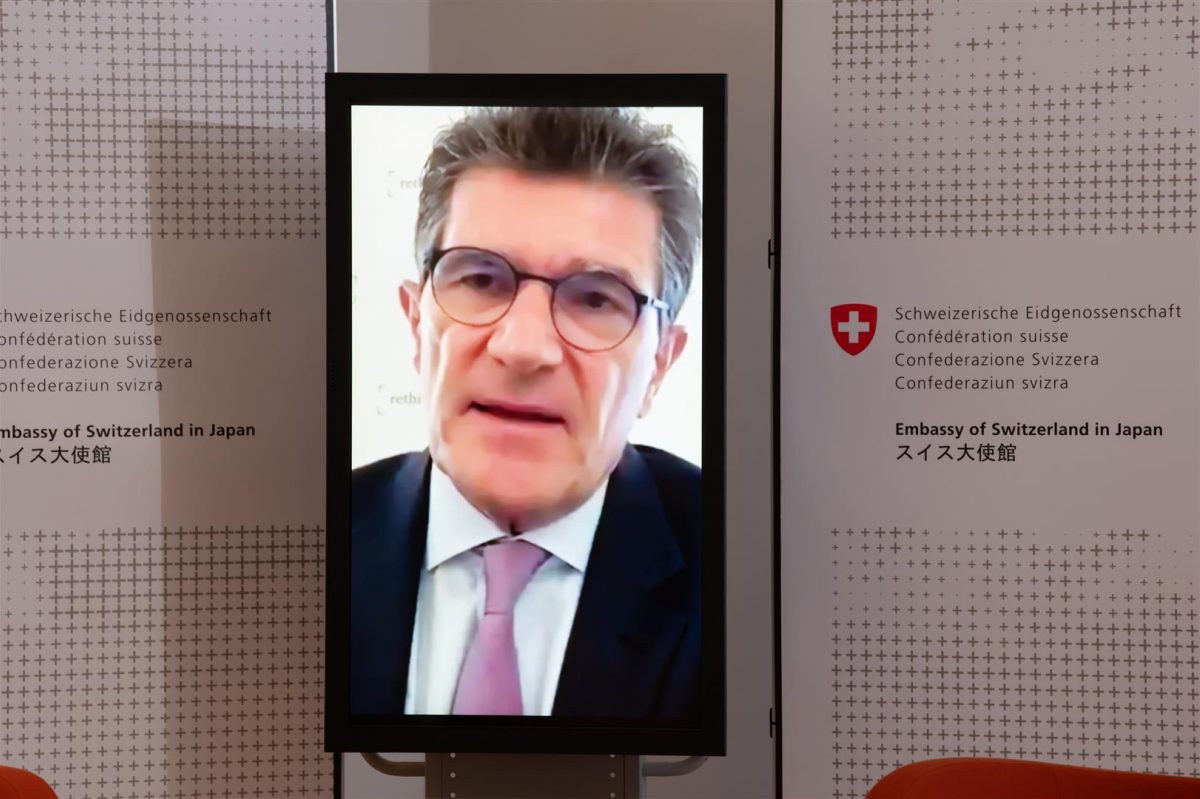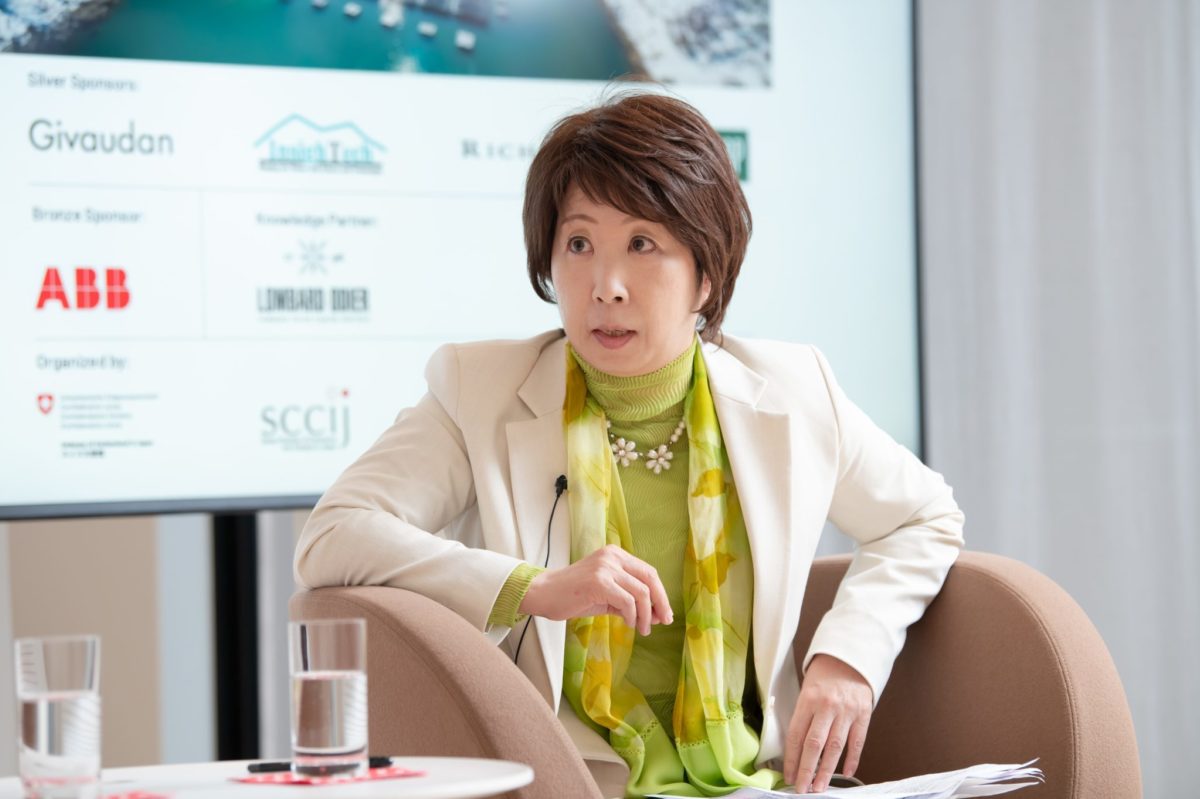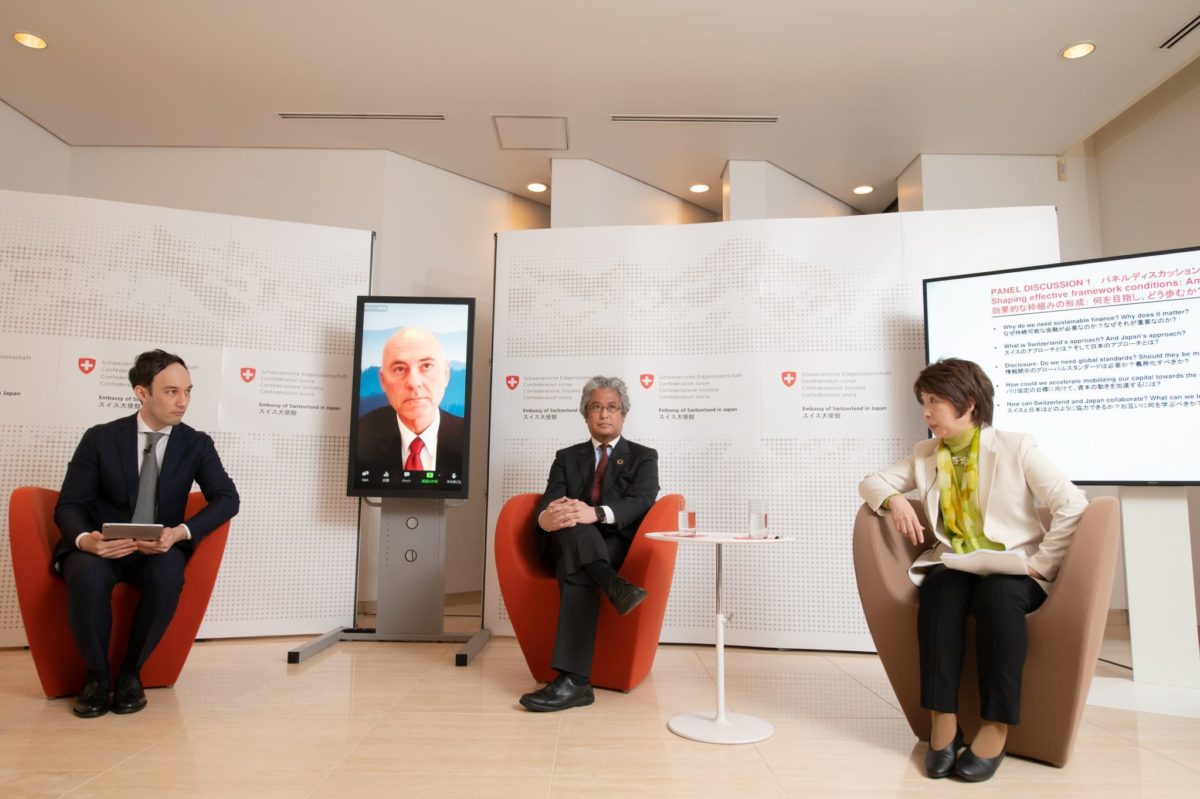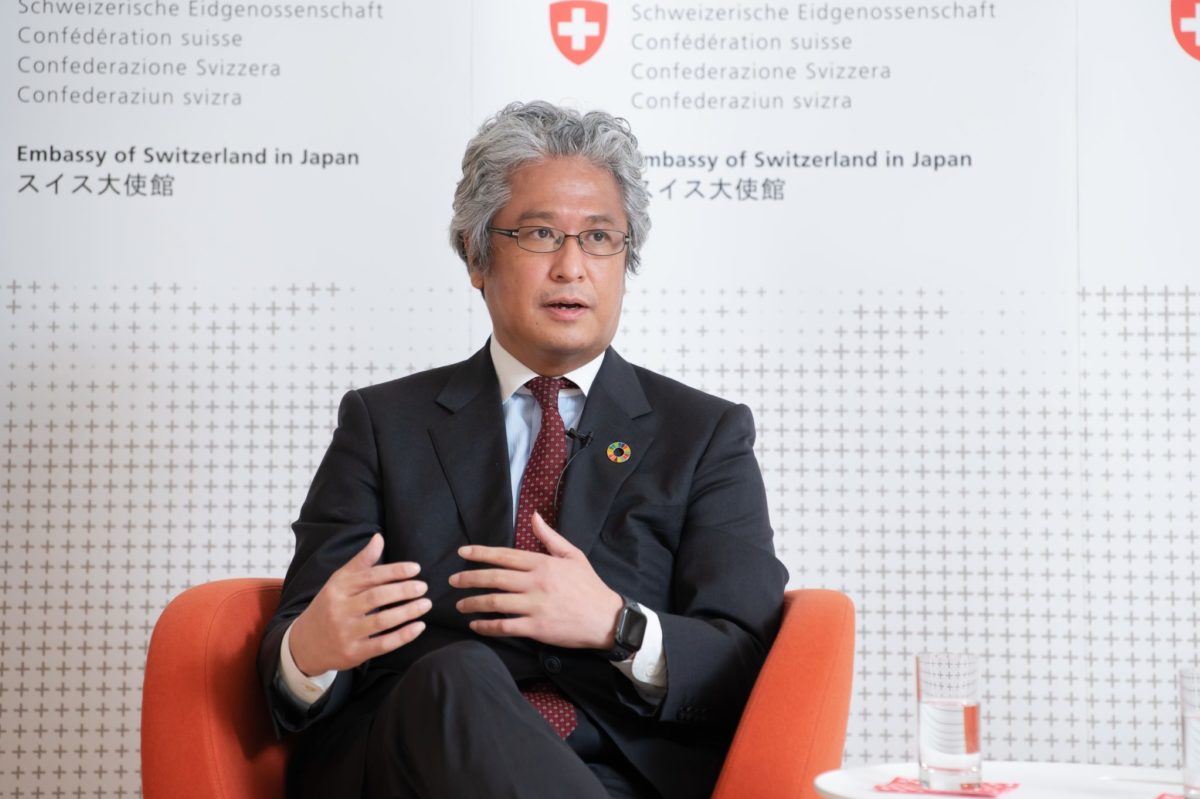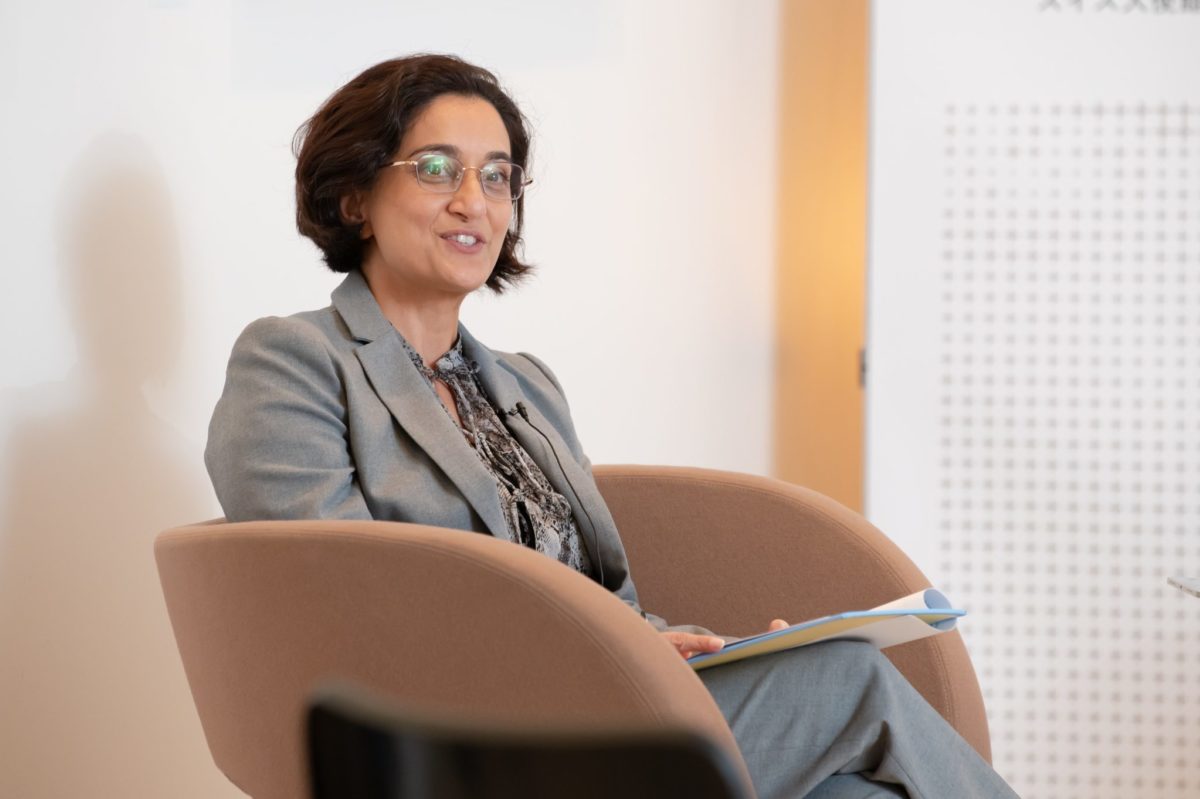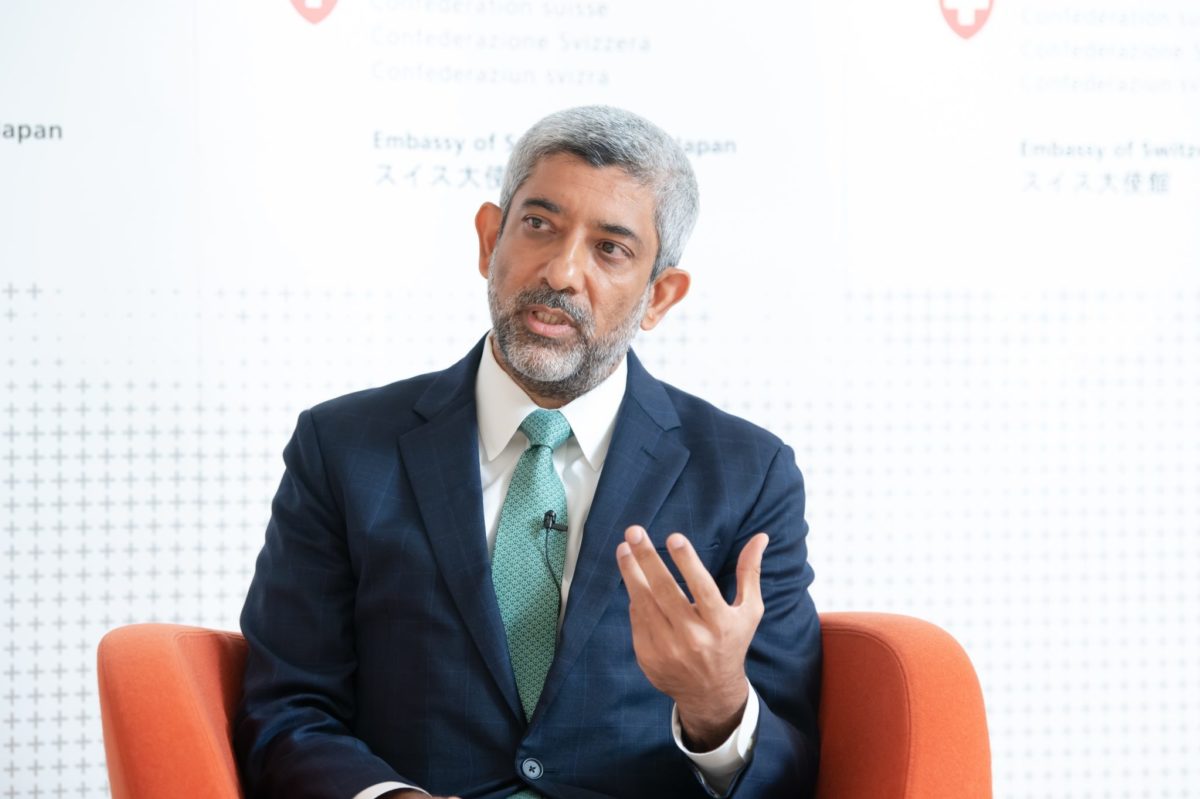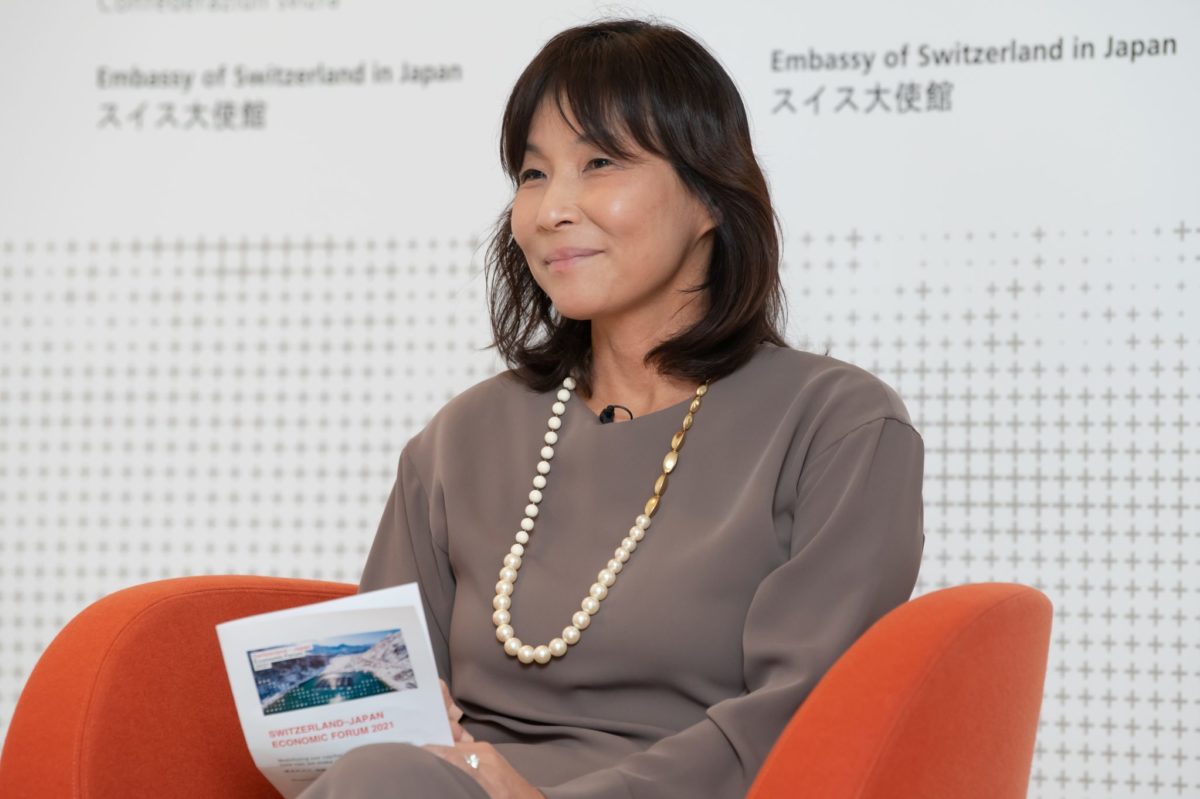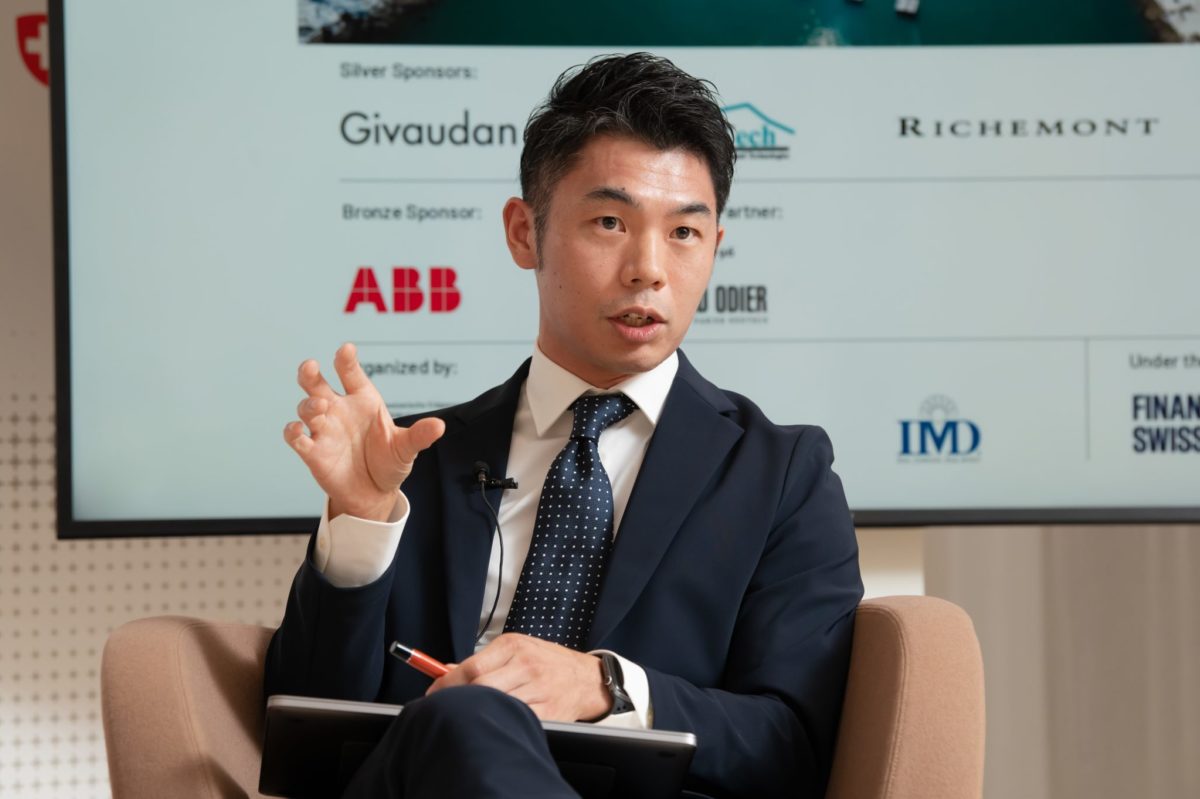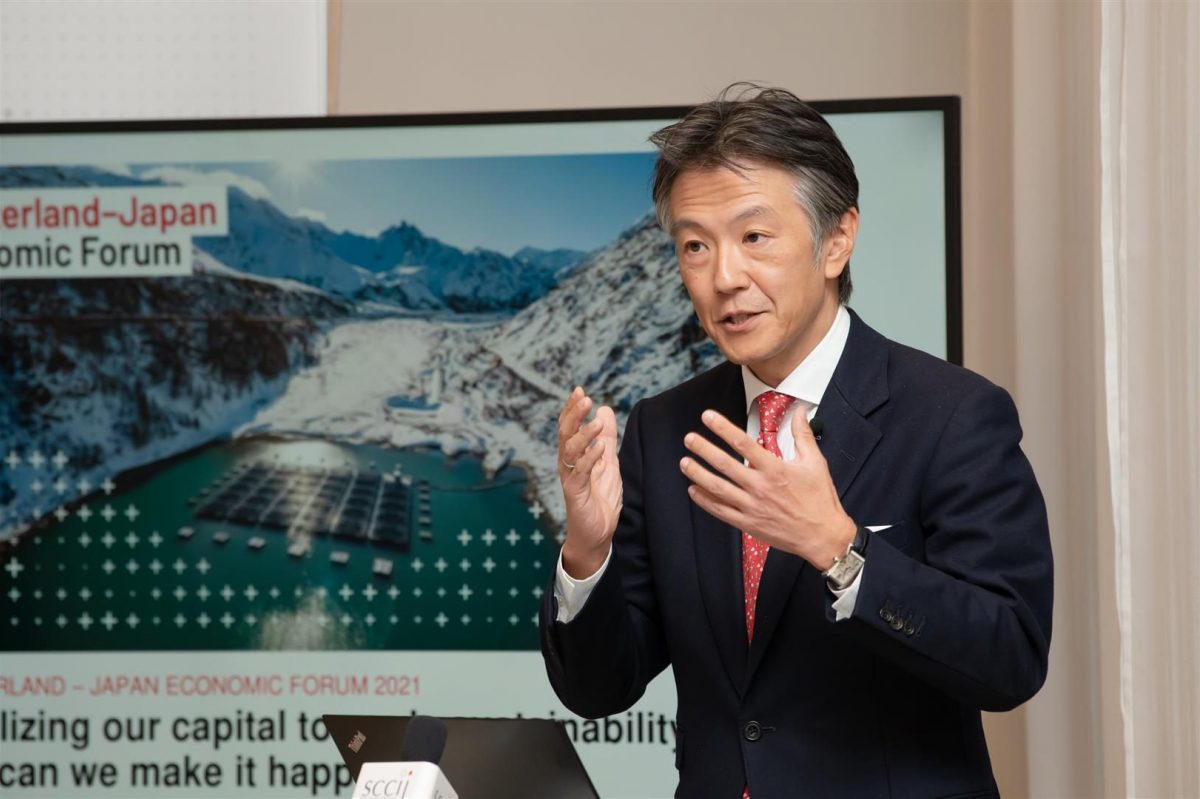2021
MOBILIZING OUR CAPITAL TOWARDS SUSTAINABILITY:
HOW CAN WE MAKE IT HAPPEN?
SUMMARY OF DISCUSSIONS
The 4th Switzerland-Japan Economic Forum took place on 20 October 2021. Just days before the COP26 in Glasgow, the Forum brought together Japanese and Swiss leaders in the domain of sustainable finance to discuss the following question: “Mobilizing our Capital towards Sustainability: How can we make it happen?”. The event was held online, with partners, sponsors and Japan-based speakers gathered at the Residence of the Swiss Ambassador to Japan.
OPENING ADDRESSES
The Forum was opened by Dr. Andreas BAUM, Ambassador of Switzerland to Japan, and Andre ZIMMERMANN, President of the Swiss Chamber of Commerce and Industry in Japan. They showed that both Japan and Switzerland have set ambitious targets, for instance to implement the Paris Agreement or to reach the Sustainable Development Goals. The financial sector can and must play a crucial role in achieving such objectives. In his remarks, Ambassador BAUM focused on the role of government in creating the right framework conditions for the sector to fulfill its potential. In this context, he referred to the longstanding bilateral financial dialogue between Switzerland and Japan. Mr. ZIMMERMANN stressed the need for private sector to gear up efforts in ESG (Environmental Social Governance) matters. He underlined that smart and responsible investment leads to financial return and benefits for all sides: the project, the investor, the financing institution and sustainability.
KEYNOTE SPEECH
The keynote speech was held by Mr. Patrick ODIER, Senior Managing Partner at Lombard Odier and President of Swiss Sustainable Finance. He argued that a profound economic transformation is underway, from a Wasteful, Idle, Lopsided and Dirty (WILD) economy to a Circular, Lean, Inclusive and Clean (CLIC™) economy. According to Mr. ODIER, this “sustainability revolution” fundamentally alters the investment landscape and brings about “the single-largest investment opportunity of our lifetime”. This revolution is “moving at the speed of the digital revolution and with the scale of the industrial revolution.” It is driven by a combination of regulation, investor pressure, changing consumer behaviors and market forces. In terms of sustainable investment strategies, he argued for a nuanced approach and a forward-looking perspective. Rather than focusing on current footprints of companies by means of binary taxonomies, a strategy should identify companies that are fit for the transition. Temperature alignment methodologies, as developed by Lombard Odier, provide investors with forward looking insights on the decarbonization pathways companies in various sectoral and geographical contexts should follow to be in line with the Paris Agreement. In view of COP26, Mr. ODIER expressed his expectations that governments need increased guidance on policy and increased carbon-pricing mechanisms. Referring to the need for all stakeholders to join forces, he also presented the upcoming event “BUILDING BRIDGES“, which will bring together the finance industry, the United Nations, international organizations, NGOs, academia and government.
PANEL 1
SHAPING EFFECTIVE FRAMEWORK CONDITIONS: AMBITIONS AND ROADMAP
A first panel of government and academia representatives focused on shaping effective framework conditions for sustainable finance. It was moderated by Jonas PULVER, Head of the Communications and Culture Section at the Embassy of Switzerland in Japan. In his initial remarks, Mr. Stefan FLÜCKIGER, Deputy State Secretary for International Finance at the Swiss Federal Department of Finance underlined the importance of setting a carbon price. In fact, “well-functioning financial markets adapt to real economic conditions and their changes”. If long term risks are properly assessed and sufficiently priced, non-market regulation would become superfluous. Meanwhile, he also stressed the transformative potential of Fintech: New digital solutions provide more data, more cheaply, more quickly and more accurately. In doing so, they enhance the capability of market actors to take decision. On the Japanese side, Mr. IKEDA Satoshi, Chief Sustainable Finance Officer at the Financial Services Agency focused his remarks on dialogue and engagement with companies, in particular in the hard-to-abate sectors, such as steel, chemical, cement, oil or gas. Japan has established transition finance guidelines and works on roadmaps and timeframes for companies in these sectors to decarbonize by adapting new technologies. He stressed the need for the financial sector to be engaged in this dialogue and assess the companies based on these criteria. In her remarks, Ms. SHIRAI Sayuri, Professor of Economics at Keio University developed an argument to introduce carbon pricing mechanisms in Japan, where the corporate sector is wary of such a move given high utility prices.
All panelists agreed that transparency is fundamental. They value the recommendations by the Task Force on Climate-related Financial Disclosure (TCFD), which are becoming widely accepted across sectors. Mr. IKEDA explained that the Japanese government supports a TCFD consortium promoting the application of the reporting standard. By revising the Corporate Governance Code, it made TCFD disclosures mandatory for companies listed in the prime market at the Tokyo Stock Exchange. Professor SHIRAI pointed to the expected launch, at COP26, of the International Sustainability Standards Board (ISSB) with a mission to foster a global standard based on TCFD. She argued that it will be difficult to have a completely unified set of rules. The emerging standard will likely be a set of principles, which will still need to be rendered more concrete and ultimately mandatory by government. Both Mr. IKEDA and Mr. FLÜCKIGER support the ISSB and the emergence of global or interoperable standards. Switzerland has submitted a candidacy for the European hub of ISSB.
Professor SHIRAI explained the importance of a taxonomy and explained different approaches in the EU, Japan and Switzerland. Both Mr. IKEDA and Mr. FLÜCKIGER voiced skepticism as to a static taxonomy, as it may not sufficiently capture trajectories of transition, which companies may be on. They both argued for a more forward-looking, with Mr. FLÜCKIGER referring to temperature alignment methodologies as an example.
Concluding the panel, Mr. IKEDA and Mr. FLÜCKIGER expressed their appreciation for the cooperation between the two countries at the international level, pointing among other fora to the G20, the International Organization of Securities Commissions (IOSCO) or the International Platform on Sustainable Finance (IPSF), where Japan and Switzerland co-host a working group on sustainability-related disclosures, together with the EU.
PANEL 2
IS ESG A PATH TO BUSINESS GROWTH AND FINANCIAL RETURN?
A second panel of diverse business representatives discussed sustainability as a concrete path to business growth and financial returns. It was moderated by Seema BHAYAT, Representative Director and Head of Private Banking at Japan Lombard Odier Japan.
In attempting to define sustainable finance, Mr. Betrand GACON, Co-Founder and CEO of Impaakt, recalled that ethical investment started out as early as the the 19th century with religious organizations excluding certain “immoral” companies from investment (negative screening). In the end of the 1980s, investors started to look more closely at the practices of companies (positive screening). Over the past couple of decades, we have witnessed a progressive shift with investors increasingly examining whether the core business model of companies is sustainable. Today, we are in the early days of a new wave: impact investment focuses on the purpose of a business and its positive net contribution to society.
Mr. Zuhair KHAN, Senior Portfolio Manager at UBP Investments agreed with previous speakers that we are in a transition period for the economy and have come to an inflection point. He sees three dimensions: 1) Companies need to reduce their carbon footprint. 2) In ageing societies, companies have to battle for talent, including by incorporating women and foreigners in senior positions. 3) Companies must embrace digitalization. For all three dimensions, the governance of a business is crucial. Only if the right management can make the right decisions for the right reasons, a company is truly equipped to succeed in the transition. In the financial market, shorting companies, which are not on the right track to make the transition, generates financial return.
Pointing to her career shift from the public sector back to the financial sector, Ms. MURAKAMI Yumiko, General Partner at MPower Partners, also stressed that the time is now. Introducing the Japanese concept of “Sanpo-Yoshi”, she reminded the audience that the notion, that something can be good for the buyer, seller and for society, has been around a long time. But today, capital market participants have a new ability to measure what is happening with companies, and it has become easier to price today what is likely to happen in 2050.
Referencing his microfinance business, Mr. SHIN Taejun, Founder, Chair of the Board and CEO at Gojo & Company, confirmed that it is possible to do good and do well at the same time. While it is relatively easy in growing markets, innovation is often needed in more mature markets to avoid a trade-off between profit and ethics. Other panelists agreed that there must not be such a trade-off. Ms. MURAKAMI elaborated that her partners and herself took the conscious decision, not to launch their fund as an impact fund, because they felt that capital markets are ready to embrace both. Their fund advises young companies to intertwine growth and ESG strategies from the outset.
The panel then discussed the role of technology. Mr. GACON recalled that any given technology has no moral, and can be used or abused. Technology can not only act as an enabler of sustainability in operations, such for example in the shared economy, but also when measuring impact. His company Impaakt aims to develop a universal measure of impact, available to all citizens for free. They use artificial intelligence to extract information from companies and collective intelligence to make sense of the data. Mr. GACON also warned that technology can be used as an excuse for inaction, for instance by putting all hopes into carbon-capture technologies, leading to complacency in fundamentally changing our behaviors. Mr. SHIN warned of certain risks linked to technology, such as the danger of data bias, the digital divide leaving behind people without access to technology, or social media amplifying hate-speech. Beyond this, however, he stressed the significant advances that technology has allowed in the field of financial inclusion and providing small scale financial services.
CONCLUSION
After these substantial interventions and rich discussions, Mr. TAKATSU Naoshi, Managing Partner, North East Asia at IMD (International Institute for Management Development), ended the Forum with concluding remarks. He shared highlights and summarized essential points brought up by all speakers and panelists.
Noting that the advancement of sustainable finance requires many stakeholders to join forces, Mr. Takatsu also introduced the upcoming IMD report “Business Transformation and Climate Change”. The report finds that profound changes happen through systems collaboration, in which the industry moves to achieve objectives in sync with the public sector and civil society. In such an effort, systems leadership, meaning the capacity to see the larger system, to encourage reflection, and to shift the collective focus from reactive problem-solving to co-creating the future, is essential. For organizations willing to transform themselves, IMD has identified six practical recommendations: 1) Anchor a commitment on climate in the business purpose, 2) Set the tone from the top, 3) Integrate sustainability in the business strategy, 4) Add sustainability to each role, 5) Focus on issues that matter, 6) Change a few systems to facilitate transformation.
